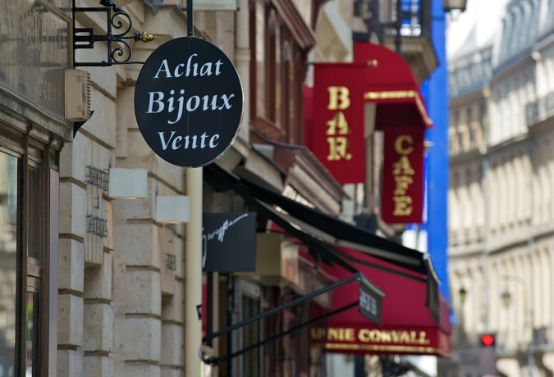Editions Leduc in British hands
The long-established French publishing house Alphonse Leduc has been sold to the British Music Sales Group. - A look at the publishing landscape in France and how it is changing.

The oldest active music publishing house in France, founded in 1841 by Alphonse Leduc, has an impressive catalog, which was expanded by two acquisitions: Editions Heugel (founded in 1839) in 1980 and Hamelle (1877) in 1990. The following composers became part of the publishing base: Gounod, Fauré, Delibes, Widor, Massenet, Offenbach, Gustave Charpentier, Poulenc, Milhaud, Jolivet, Tournemire, Franck, Messiaen, Honegger, Tomasi. Then there were the contemporaries Henry Dutilleux, Pierre Boulez, Charles Chaynes, Betsy Jolas, Thierry Escaich, to name but a few.
Leduc has now been taken over by Europe's largest music publisher, the British Music Sales Group. The traditional publishing headquarters on Rue Saint-Honoré in Paris was sold a few months ago.
On the occasion of this takeover, Michèle Worms offers the following in the editorial of the magazine La Lettre du Musicien a brief overview of the French publishing landscape and its changes (translation by Pia Schwab):
Thirty years ago, there were publishing houses in France ranging from the very small to the very large with a wide variety of orientations. Of the big ones, the flagships of French cultural heritage, Heugel, the publishing house of Jacques Offenbach and Reynaldo Hahn, had already been transferred to Editions Alphonse Leduc. Leduc, based on Rue Saint-Honoré, had long held the rights to Fauré's works and was an indispensable source of valuable performance material for orchestras and opera houses. The publishing house's finest achievement was undoubtedly the printing of Messiaen's Saint François d'Assise in 1983, the score of which ran to 2400 pages!
The Durand publishing house (1869) was enthroned on the Place de la Madeleine, in the salon of the grand piano on which Debussy and others had played while waiting for their publisher. He mainly had the big names of the "Moment 1900" in his program and was very envied for the rights to Ravel's Boléro. In 1986, Durand bought the publishing house Max Eschig (1907), which brought with it a more international range. The Bohemian-born founder was the king of Viennese operetta, publishing great Spanish and South American composers as well as Martinů and Szymanowski.
The business success of Editions Choudens was ensured by Bizet's Carmen and Gounod's Fist. Salabert, on the other hand, focused on operettas, chansons, but also the works of the Groupe des Six and today on a rich selection of contemporary works; Henry Lemoine on classics of piano literature up to Bruno Mantovani. They were all able to keep up with the greats. Other publishers, such as Jobert, which was taken over by Lemoine in 2007, devoted themselves to the contemporary repertoire.
While Durand-Salabert-Eschig have been part of Universal Music for some time now (as has Ricordi, by the way, editor's note), the latest takeover concerns Alphonse Leduc, who comes under the umbrella of the Music Sales Group.
The publishing landscape has therefore changed considerably: Of the historic houses in France, Henry-Lemoine (1772) and Editions Gérard Billaudot (1896), which publish modern composers or high-quality educational literature, remain. Thanks to a myriad of creative small publishers, the signs seem to point to specialization.
In Germany and Austria, the major publishers Schott, Peters, Breitkopf, Bärenreiter, Henle and Universal hold their own. The last four do considerable research and Urtext editing work, which makes them indispensable. The British houses, on the other hand, hold the sceptre of popular music in their hands. And their catalogs will now also include Massenet, Franck, Poulenc, Milhaud, Dutilleux ... without their hearts particularly beating for them. What a pity!







